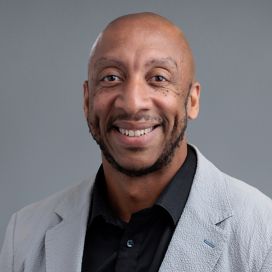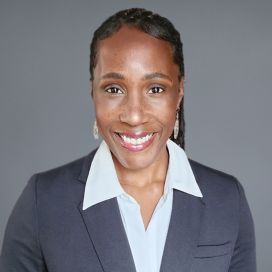Financial Aspirations of Black Americans

Problem
Little research focuses on the unique financial circumstances, aspirations, and challenges that Black Americans face.
Based on previous research, we know that challenges exist which impact the financial well-being of Black households. Yet, little is known about the types of circumstances Black Americans face in their daily finances and the challenges they encounter when seeking to save, invest, or further their financial planning.
Solution
The Joint Center for Political and Economic Studies and NORC partnered to better understand the financial status of Black Americans, their financial goals, and barriers to reaching them.
The Joint Center partnered with NORC to field a multimode study of Black Americans’ financial circumstances, aspirations, barriers to financial well-being, and beliefs about policies that would enhance their financial circumstances. This research project involved four phases. In the first stage of research, the Joint Center interviewed several scholars to identify research gaps and potential methodological approaches to better understand the economic well-being and aspirations of Black households. In the spring of 2022, the Joint Center convened experts, scholars, activists, and advocates, to help narrow the scope of the project and inform the research agenda. After this expert group provided guidance on broad areas of interest, NORC convened a series of four focus groups in the summer of 2022 with Black Americans from across the United States and from a wide variety of financial circumstances to ensure that the content of the survey reflected the concerns of Black Americans and not just the suppositions of academic experts.
We used the data gleaned from these initial steps to embed inclusivity and the voice of the population under study into the content of the survey. The online survey fielded from September 16 to October 10, 2022, with responses from over 1,500 Black Americans. Data collection used NORC’s probability based AmeriSpeak panel and opt-in panel respondents. AmeriSpeak data and opt-in panel data were combined using NORC’s TrueNorth® weighting techniques to accurately reflect the population of Black Americans in the United States. After the survey, we reconvened four focus groups of survey respondents to reflect on their lived experience of the survey findings.
Result
The financial status of Black Americans varies and most are optimistic of their financial future, even lower-income Black Americans.
Black Americans vary significantly in rating their current financial situation. Less than half rate their current financial situation as good and around 1 in 5 rate it as poor. More Black Americans say that their financial situation has gotten worse in the past year than say that it has gotten better. Over a quarter of Black Americans report having reduced their spending in the last year, and between 20 and 25 percent of Black Americans have put off some form of medical care in the past year for financial reasons. Many report that they do not have enough savings to last more than a month or two and are concerned that their savings will not last. However, despite some distressing indicators about their current financial situation, most Black Americans are optimistic about their financial future, even at the lower income level.
Lower-income Black respondents indicated that their financial aspirations are more near term. Those with higher incomes tended to have aspirations based more on future states, such as being debt-free, having enough money to comfortably retire, and being able to leave assets as an inheritance. Most Black Americans think that they will have enough money to retire, even those with lower incomes. The main barriers that Black Americans see to achieving their financial goals are high inflation, high interest rates, and not having enough money to start investing. Around 4 in 10 Black Americans indicated that racial discrimination by lenders was, at least, a moderate barrier to achieving their financial goals. Over a third of Black Americans noted that they were concerned that Social Security benefits would be cut, and around a quarter indicated that they were concerned about the cost of health care as a possible impediment to a comfortable retirement.
Related Tags
Project Leads
-
Vince Welch
Associate DirectorPrincipal Investigator -
Juan Carlos Donoso
Senior Research ScientistSenior Staff -
Ashani Johnson-Turbes
Vice PresidentSenior Advisor









